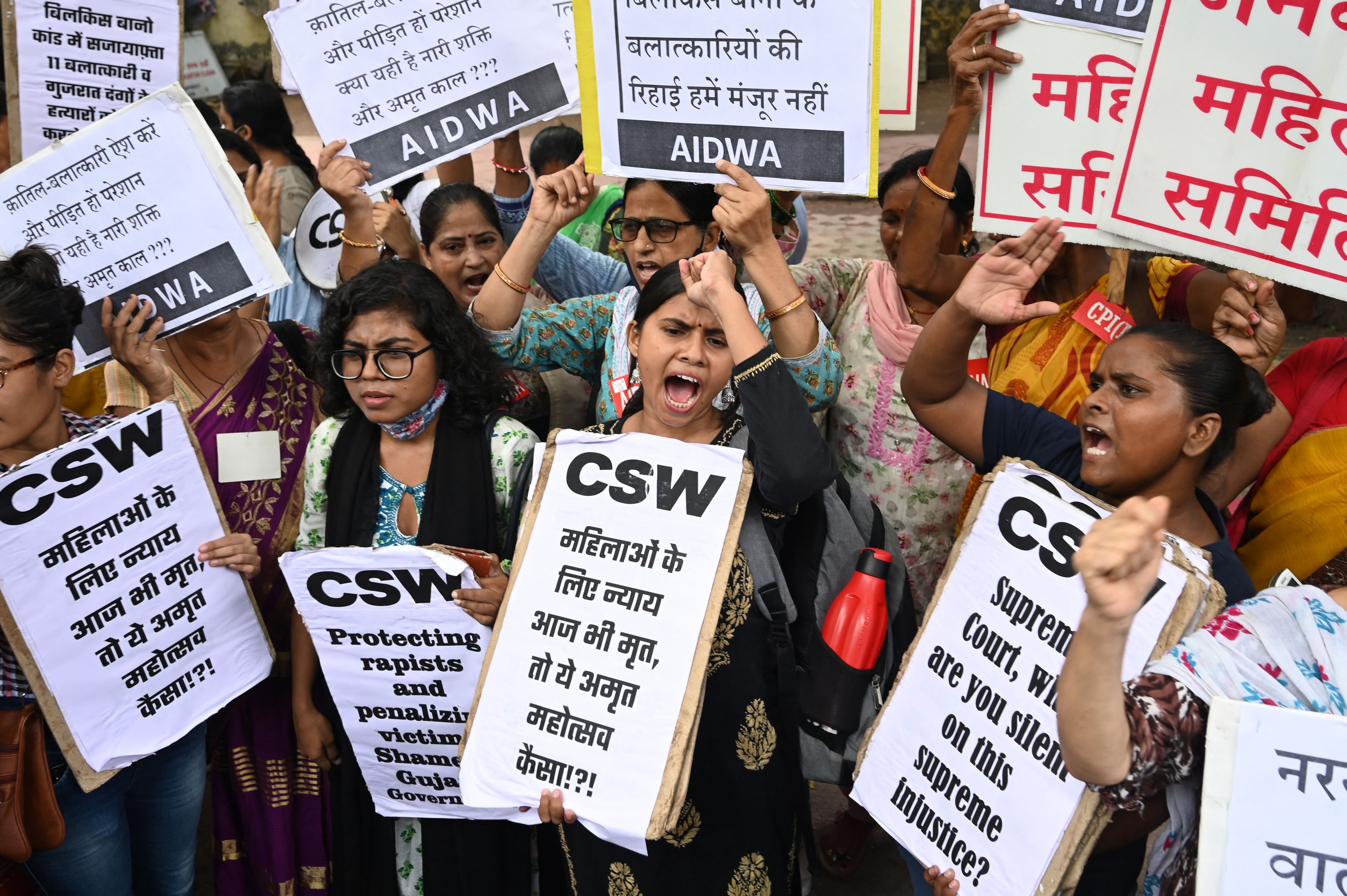Bilkis Bano: Have 11 men convicted in high-profile Indian rape case gone missing after release?
Defence lawyer Rishi Malhotra insists convicts are ‘very much there [at their homes]’ after media reports

A lawyer for 11 men convicted of gang-rape and murder during the 2002 Gujarat riots in India, who were controversially released from prison last month, has denied a report that the men have gone missing.
The men were found guilty of raping Bilkis Bano, who was 19 years old and pregnant at the time of the anti-Muslim riots that left more than 1,000 people dead. She survived the attack by a Hindu mob but saw 14 members of her family killed.
Last month, having served 14 years of a life sentence, the men walked free from prison to a heroes’ welcome from relatives and supporters.
Now, a report by the video news portal Mojo Story claims that the freed convicts are all either missing or have gone to ground. Journalists from the outlet visited homes associated with all 11 men but reported that there was no sign of them, while purported family members and neighbours did not provide clear answers to their whereabouts, according to video interviews by the outlet.
The report came just days before India’s Supreme Court is scheduled to hear two pleas challenging their release in the case. There are fears that by the time the country’s highest court gives its Friday ruling, the 11 men might already be untraceable.
However Rishi Malhotra, a lawyer representing the 11 convicts dismissed such concerns. He told The Independent: “First of all they were not on bail. They were released. They are very much there [at their homes]. There is no need for them to go underground. It is absurd.”
He objected to the characterisation of them as “missing” and said “they just don’t want to face the media”.
Shobha Gupta, the senior Supreme Court lawyer representing Bilkis Bano, told The Independent. She had also heard “rumours” that the 11 men were in hiding but “after their lawyer [Mr Malhotra] assured that they are not really in hiding or gone underground, I would like to assume that is the case”.
She said Mr Malhotra has “assured that if they [the 11 convicts] are required to present themselves in front of the court, they would be made available”.
When asked if there would be any hurdle to the Supreme Court ruling on Friday that, as an interim measure, they be sent back to jail, Ms Gupta said: “I would like to believe their lawyer who has assured that they shall be made available.”
The 11 men were serving life terms for the gang-rape of Ms Bano and the murder of seven of her family members. They were released on 15 August – the same day India observed its 75th Independence Day.
Narendra Modi, the country’s prime minister who was the Gujarat chief minister during the 2002 riots, marked the national holiday by calling for an end to crimes against women. Yet observers noted that on the same day, convicted gang-rapists were being welcomed home with garlands and sweets.
Ms Bano said their release left her feeling “numb” and “bereft”.
“Today, I can say only this – how can justice for any woman end like this?” she said. “I trusted the system, and I was learning slowly to live with my trauma,” she said, adding that the release had shaken her faith in the justice system. “No one enquired about my safety and well-being before taking such a big and unjust decision.”
Nearly 50 women’s rights groups and more than 80 activists and scholars have expressed disappointment and anguish over the decision.
“It shames us that the day we should celebrate our freedoms and be proud of our independence, the women of India instead saw gang-rapists and mass murderers freed, as an act of state largesse,” they had said in a joint statement last month.
Join our commenting forum
Join thought-provoking conversations, follow other Independent readers and see their replies
Comments

Bookmark popover
Removed from bookmarks